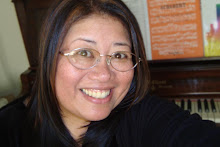For Our Vets, 2005
This story will always move me. Always.
The Story of the Unknown Soldier
Armistice Day was observed all over the United States by veteran's parades, public services both religious and secular, with two minutes of silence to honor the dead. In 1920, the British Unknown Soldier was buried in Westminster Abbey, the burial place of kings and queens; that same year a French Unknown Soldier was interred at the Arc de Triomphe in Paris, where a perpetual flame burns.
In 1921, the American Unknown Soldier, symbolizing all the unknown dead, was chosen in an unusual way. Six soldiers of the American Army of Occupation in Germany were selected from different sectors to act as pallbearers. They met at Chalons-sur-Marne, and were interviewed by General Rogers. Next day, Sergeant Edward F. Younger of the 59th Infantry was asked to make a choice among four caskets, with unidentified bodies disinterred from American cemeteries at Bony, Belleau Wood, Romagne, and Thiaucourt.
When the sergeant was ready to perform his solemn duty, he received a bouquet of white roses, with instructions to proceed into the City Hall at Chalons, where the four caskets stood. Sergeant Younger realized fully the grave importance of his action; and after bowing his head, he walked around the coffins three times. On the fourth round, he seemed involuntarily drawn to the second one. Reverently, he laid the roses on it, saluted and reported to his commanding officer that he had accomplished his mission.
The body of the Unknown Soldier was brought home on the cruiser, Olympia, reaching Washington, D.C., on November 9, 1921. For three days thousands of people passed by as the body lay in state in the rotunda of the Capitol. For this important Armistice Day in 1921, President Harding requested that flags be flown from sunrise to sunset at half mast, and that all Americans pay silent tribute as the casket was lowered into the tomb at 11 A.M. on November 11, 1921. There were elaborate ceremonies. High army, navy, and other service personnel, along with diplomats, who had followed the caisson to Arlington, heard the President's address. Many wreaths came from all over our country, and from abroad, these were placed on the plain white marble tomb, on which is these words:
Here rests in honored glory An American Soldier Known but to God.


|